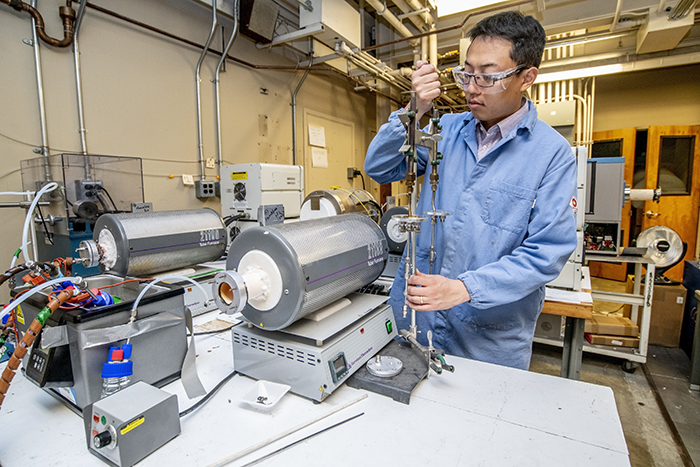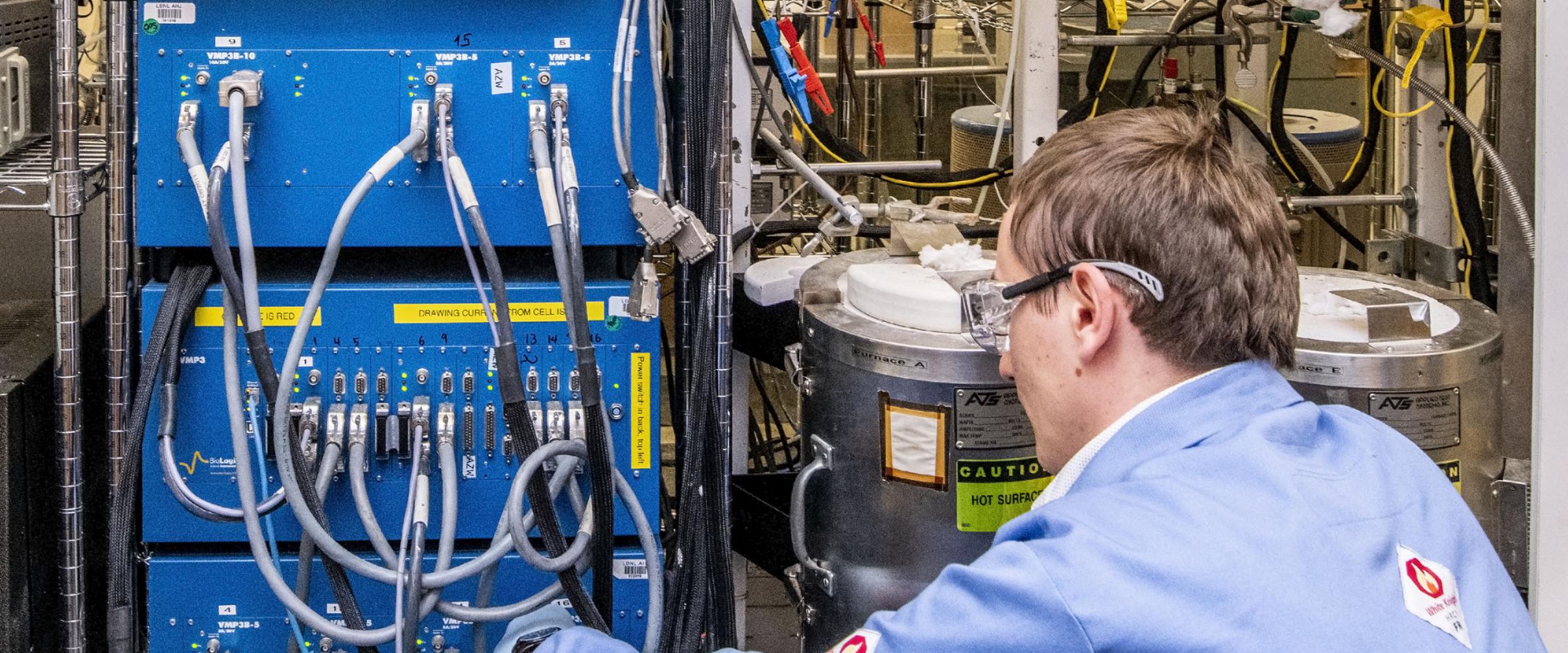Electrolyzers

What Are Electrolyzers?
Electrolyzers are electrochemical energy conversion devices that use electricity to split water into oxygen and hydrogen, the latter of which can be used for vehicle fueling, fertilizer production and biogas.
Industrial Electrolyzers
While industrial electrolyzers do exist, they are too expensive in their current form for widespread adoption and integration into existing grids or fueling. Our group works to reduce the cost and improve the efficiency of electrolyzers by resolving component-related mass and charge transport limitation using a combination of experimental and modeling tools.
In these efforts, we are focusing on:
- characterizing membrane and ionomer mechanical and chemical properties under liquid water environments and high temperature
- characterizing dispersion and ink properties prior to fabricating catalyst layers and membranes and then characterizing their functional properties post-fabrication;
- catalyst and ionomer interactions within the catalyst layer using microelectrodes;
- the catalyst and transport layer interfaces as well as the transport layers themselves using tomography
High Temperature Electrolyzers
Solid oxide electrolysis cells that operate at high temperature (500-800C) provide high performance and efficiency, and can make use of waste heat or steam from industrial or geothermal sources. We are developing metal-supported SOEC cells that tolerate extremely rapid temperature fluctuations, handle mechanical abuse, and provide very high performance.

